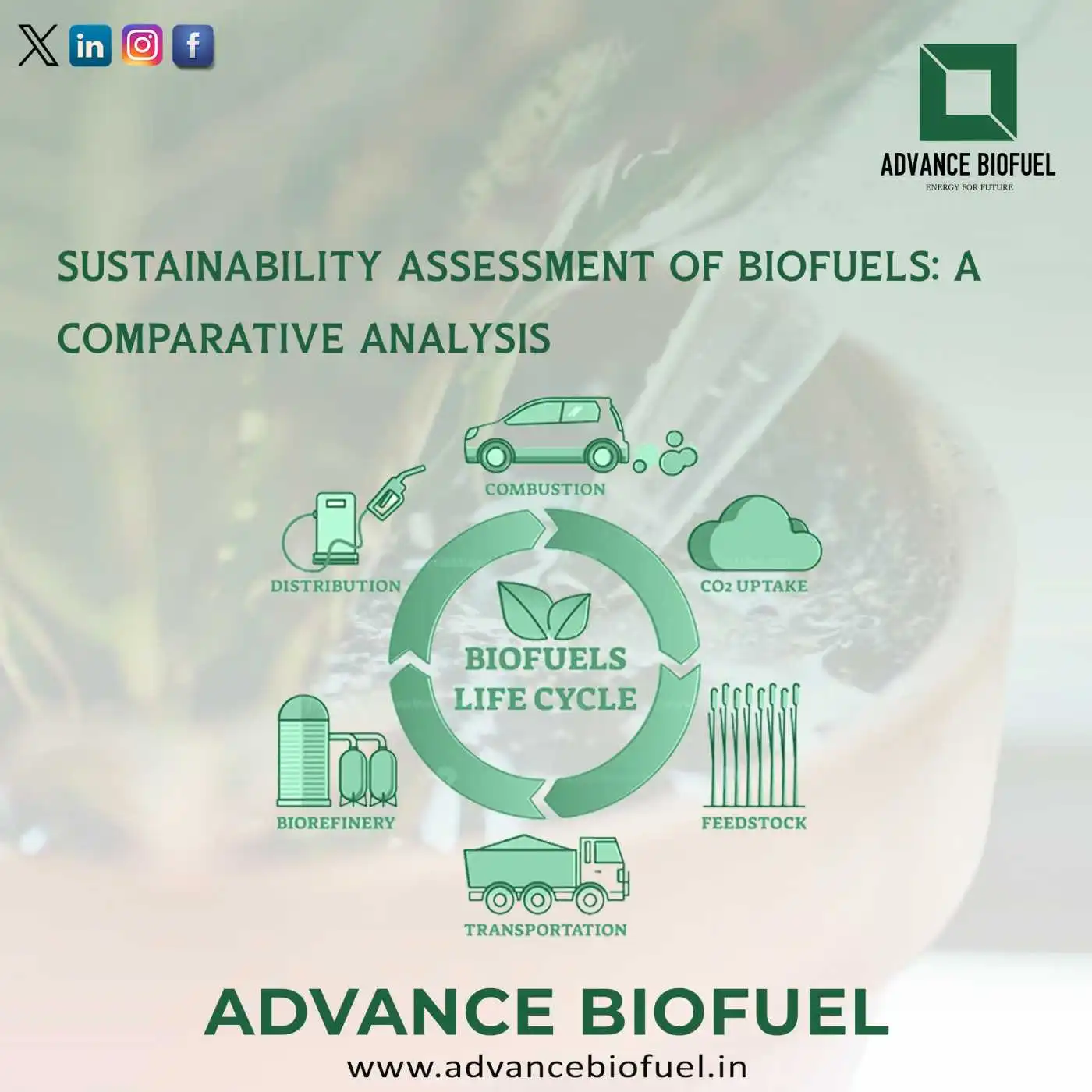Biofuels, proclaimed as a promising opportunity for fossil powers, have gathered considerable consideration interior the journey for feasible control answers. With concerns over climate trade, quality security, and natural corruption rising, the need for renewable and occasional-carbon power sources has become foremost. This paper conducts a comparative assessment of various biofuels, employing Data Envelopment Analysis (DEA), to shed light on their sustainability aspects and provide recommendations for addressing global challenges.
Biofuels, determined from normal substances in conjunction with vegetation buildups, and squander biomass, offer the capacity to diminish nursery gas outflows, embellish provincial improvement, and expand quality resources. In any case, their fabricating, conveyance, and utilization involve complicated natural, social, and financial concerns.
By reviewing the natural impression, social impacts, monetary achievability, and coverage frameworks related to particular biofuel pathways, the examination looks to supply experiences into their universal sustainability in general execution. Understanding these variables is critical for policymakers, businesses, and partners to create educated choices and control the move within the course of a more feasible power future.
Global Population growth and higher living standards have led to an increase in energy demand, with transport being the main player. Biofuels, such as biodiesel and biodiesel, are considered promising alternatives to fossil fuels for sustainable development. They offer ancillary benefits such as diversifying fuel supply and strengthening domestic agriculture.
However, they also face negative side effects, such as competition for land and water use. A study evaluates the performance of 72 different biofuel production routes considering economic, environmental, and social sustainability dimensions, using DEA to provide a framework for holistic assessments.
Why Biofuels
Biofuels made from biomass are appealing because they use local, renewable resources, minimize reliance on oil, and are carbon neutral. This diminishes energy security and variety while increasing resilience. Biomass fuels also seek to stabilize farmers’ incomes, as they are frequently the weakest link in the supply chain for agricultural and agro-based industries.
However, the sustainability benefits of biofuels have been called into question due to a variety of environmental and practical restrictions. The apparent carbon neutrality does not last the whole life cycle of biofuel production and usage.
Despite this, biofuels can reduce greenhouse gas emissions compared to fossil fuels, and rich carbon-stock land is not converted to agriculture. However, land use change concerns can be difficult, especially when forests are converted to agriculture.
Assessment tools for Biofuels and Bioproducts
Several approaches have been developed to analyze the sustainability of biofuels and bioproducts. The most fundamental is energy analysis using the first rule of thermodynamics, two common indications are net energy balance and net energy ratio. These can be used as a preliminary test for biofuels if the total energy obtained from them is less than the input energy over their life cycle, then producing them makes like sense. “Renewability” is a more precise indication that only analyzes the life cycle input of fossil energy.
Biofuels may provide more sustainable energy by using less fossil fuels in the manufacturing process. Energy analysis, a complex method that takes into account both energy quality and quantity, has been used to discover thermodynamic inefficiencies in energy systems. It has been integrated with life cycle assessment to provide exergoenvironmental and exergoeconomic evaluations. energy, an ecocentric valuation technique that analyzes Earth’s processes, is similar to exergy but incorporates non-market inputs.
However, measuring the energy of stoned natural environmental repercussions. Recent attempts have merged this with LCA to carry out economic and environmental evaluations. The study focuses on life cycle assessment (LCA), a globally defined approach for analyzing environmental consequences across the life cycle of a product or service.
LCA of Biofuels and Bioproducts
LCA (Life Cycle Assessment) is a tool used to evaluate the environmental impact of transportation fuels, particularly biofuels. It considers the entire life cycle and multiple impact categories. Challenges include setting up appropriate frameworks, determining system boundaries, and allocating environmental burdens.
To maintain sustainability, lifecycle-based tools, green chemistry, good agricultural practices, efficient production, and policy frameworks are essential. Innovation in biofuel production and biomass utilization are also crucial.
Conclusion
Research that used LCA and DEA to evaluate 72 biofuel pathways discovered that MSW biofuels are the most efficient, followed by natural oil fuels. Renewable diesel is suggested for broad use due to its greater fuel efficiency and biogenic carbon content. The report also emphasized the necessity of responsible vehicle usage and set goals for improving inefficient biofuels. Promoting biological carbon sources as an intermediate option might assist attain net-zero goals.
Trust Advance Biofuel, we are the premier Biofuel Manufacturer in India. We are also experts at manufacturing Fuel Ethanol Production Plants and Essential Oil Plants.


